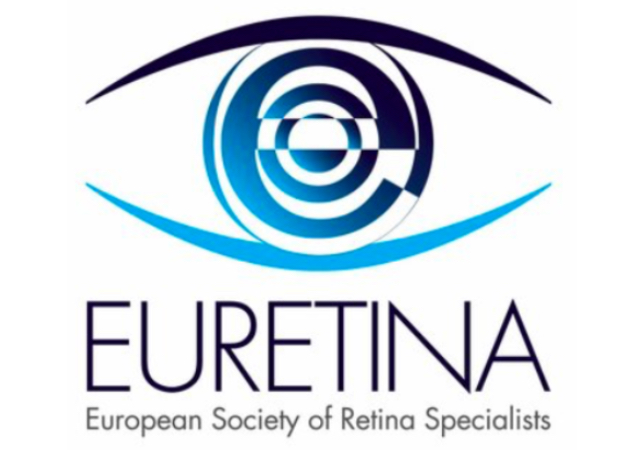Dr. Jordi Monés speaks at the EURETINA 2016 Congress about therapeutic approaches to atrophic AMD

Dr. Jordi Monés, the Medical Director of the Barcelona Macula Foundation: Research for Vision, focused on therapeutic approaches to the atrophic form of age-related macular degeneration (AMD) in a talk at the Congress of the European Society of Retina Specialists, EURETINA 2016. Dr Monés was speaking during the session devoted to the new perspectives on atrophic AMD, a form of the disease for which there is still no treatment. Held on September in Copenhagen, the Congress is the most important meeting of retina experts in Europe.
Our great challenge as researchers lies in delaying the relentless progression of atrophic AMD
Dr Monés explained that the great challenge faced by the ophthalmological community today lies in seeking a treatment that delays the «relentless progression» of atrophic AMD. The BMF’s scientific chief said that we are aiming in turn to restore or regenerate the retinal tissue damaged by the disease and he highlighted the «huge progress» made in the field of the etiopathogenesis of AMD.
«Nevertheless, this remains an extremely complex disease, which has a variety of speeds and mechanisms of progression and many unresolved issues still» Dr Monés said. The reality is that «there is no treatment for the forms of geographic atrophy», despite the results and indications provided by the research conducted with regard to the role of oxidative stress, inflammation and genetics in the pathogenesis of AMD.
Dr Monés underscored the phase II and III research currently being carried out «to slow the progression of atrophic AMD or the initial stages of geographic atrophy, such as some topical or oral molecules to modulate the visual cycle, the choroidal blood flow or the exploration of medicines that already exist». He also spoke of the projects in phase II, which are focused on the complement system, with diverse compounds. In addition, he chose to highlight the recent publication of «other approaches that involve the removal of drusen and subretinal deposits by using high doses of statin to explore whether the progression towards geographic atrophy may be modified», and the «revision of old therapies such as the use of laser to remove drusen or to stimulate the cellular function of the pigmentary epithelium of the retina».
Dr. Monés, however, stressed the need for therapeutic approaches that attempt to restore vision in cases of advanced geographic atrophy and severe sight loss, such as «regenerative therapy with subretinal transplantation of stem cells».
The arrival of Dr Monés in EURETINA 2016 coincided with that of other internationally-renowned specialists in the posterior segment of the eye like Baruch Kupermann from the United States, who forms part of the BMF’s Scientific Board. During the Congress, Dr. Monés also spoke in a variety of Advisory Boards, including those that gathered the advisors of the Swiss pharmaceutical company, Novartis, or of Eye Diagnosis.